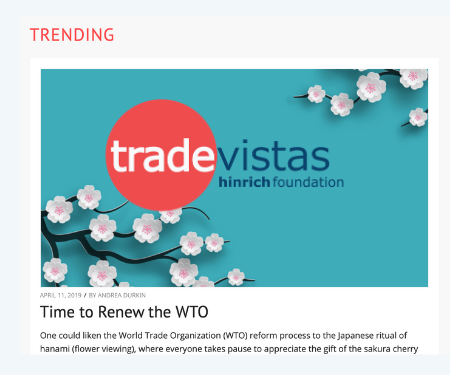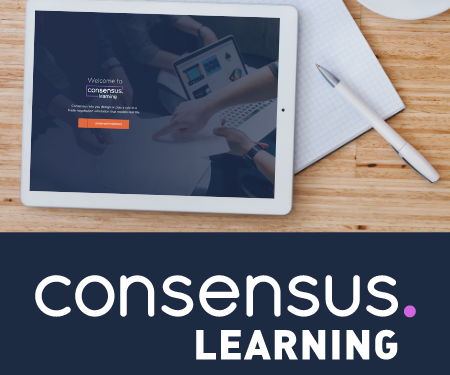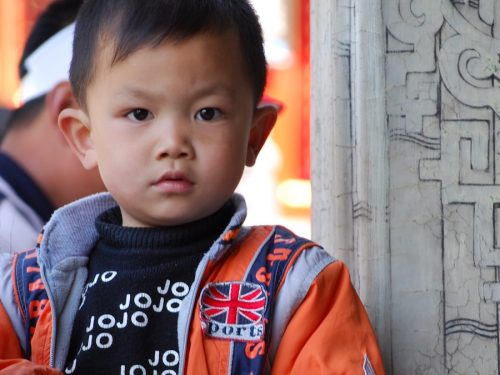
Teaching the Next Generation of Trade Policymakers
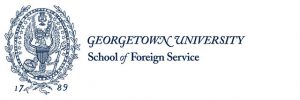 GEORGETOWN UNIVERSITY, Adjunct Associate Professor
GEORGETOWN UNIVERSITY, Adjunct Associate Professor
I’ve had the privilege of teaching graduate students for the last 17 years at my alma mater, Georgetown’s Master of Science in Foreign Service (MSFS) program. The students mostly concentrate in Global Business and Finance but also International Development, Global Politics and Security as well as law and area studies.
Our goal (I co-teach with the talented trade lawyer, Andy Shoyer) is skills development – how to solve any trade policy problem, how to negotiate trade deals, how to brief an executive or senior policymaker, and how to write clearly and concisely. Along the way, they acquire enough proficiency in trade law and policymaking to outperform anyone in an interview for a professional trade job.
There’s nothing inevitable about American leadership or the dominance of democracies and free market systems in the world. Our job is to train students to innovate foreign policy – they mustn’t simply learn what came before or what is today.
While I am still a practitioner of trade policy, I love teaching the next generation and inspiring them to believe they can evolve and advance our global trading system for the betterment of people around the world. The longer I teach the more pedagogical methods I learn to involve students as active participants in their own education.

UNIVERSITY OF NEBRASKA YEUTTER INSTITUTE, Guest Lecturer
In Spring 2020, I piloted a four-week “pop-up” course worth one credit at the University of Nebraska-Lincoln, taught over weekends and online. This was a wonderful opportunity to test out this format and work with students at the undergraduate level. The course was a more introductory, short version of my MSFS program course that included a hands-on negotiation simulation.
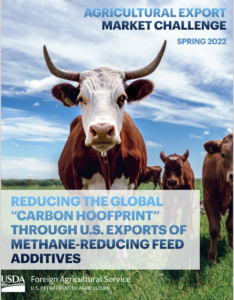
CLIENT: U.S. Department of Agriculture Foreign Agricultural Service (FAS)
PROJECT: Student Agricultural Export Market Challenge
USDA commissioned me to develop this exciting pilot program to offer an experiential learning opportunity to students at minority-serving institutions (MSIs) that would familiarize them with the mission and daily work of FAS and in doing so, generate interest from students in exploring pathways to careers at FAS.
We successfully recruited student teams from 15 MSIs representing Historically Black Colleges and Universities, Hispanic Serving Institutions and Asian American and Native American Pacific Islander-Serving Institutions.
Understanding FAS objectives for learning outcomes, I drafted a case study that required the teams to conduct analysis to choose a target market, to evaluate potential market barriers and identify top challenges, and to explore and identify FAS resources and expertise to help overcome barriers to access. The case study approach, combined with pairing student teams with FAS mentors, enabled the students to engage in a valuable real-world exercise through which they learned about new climate-smart agriculture policies, business development approaches to sell to foreign markets, and opportunities to work with FAS to overcome technical barriers to enter new markets. Along the way, students were introduced to, and utilized, various FAS resources, from databases and analyses to capacity building programs and technical exchanges. In addition to learning new material, students applied their knowledge in various forms: analysis, oral presentation, and a professional written leave-behind – all critical professional skills.
As an unexpected benefit, the project created a platform for FAS staff to work together to help design the Challenge and make it better by virtue of their diverse perspectives and expertise. They made connections with their alma maters and found satisfaction in engaging students from minority-serving institutions from which FAS would like to enhance recruiting. Happily, the project will be renewed by FAS.
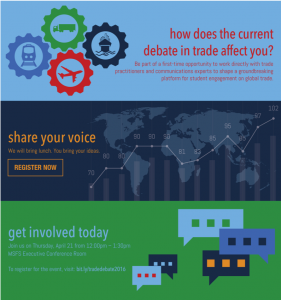
CLIENT: Koch Foundation
PROJECT: Giving Millennials a Voice on Trade
With sponsorship from the Koch Foundation, I partnered with Collaborative Communications to run a workshop entitled, “How Does the Current Debate in Trade Affect You?” that drew student participants across many disciplines at Georgetown.
The students offered views and feedback about where they get their trade news, how they perceive public reaction to trade policy debates, how citizens outside the United States feel about U.S. trade policy, and how these discussions and policy directions may affect international business, national security, and the conduct of global foreign affairs. The words they used and their own personal experiences offered important insights for how seasoned practitioners should engage this generation to ensure their voice is heard.

